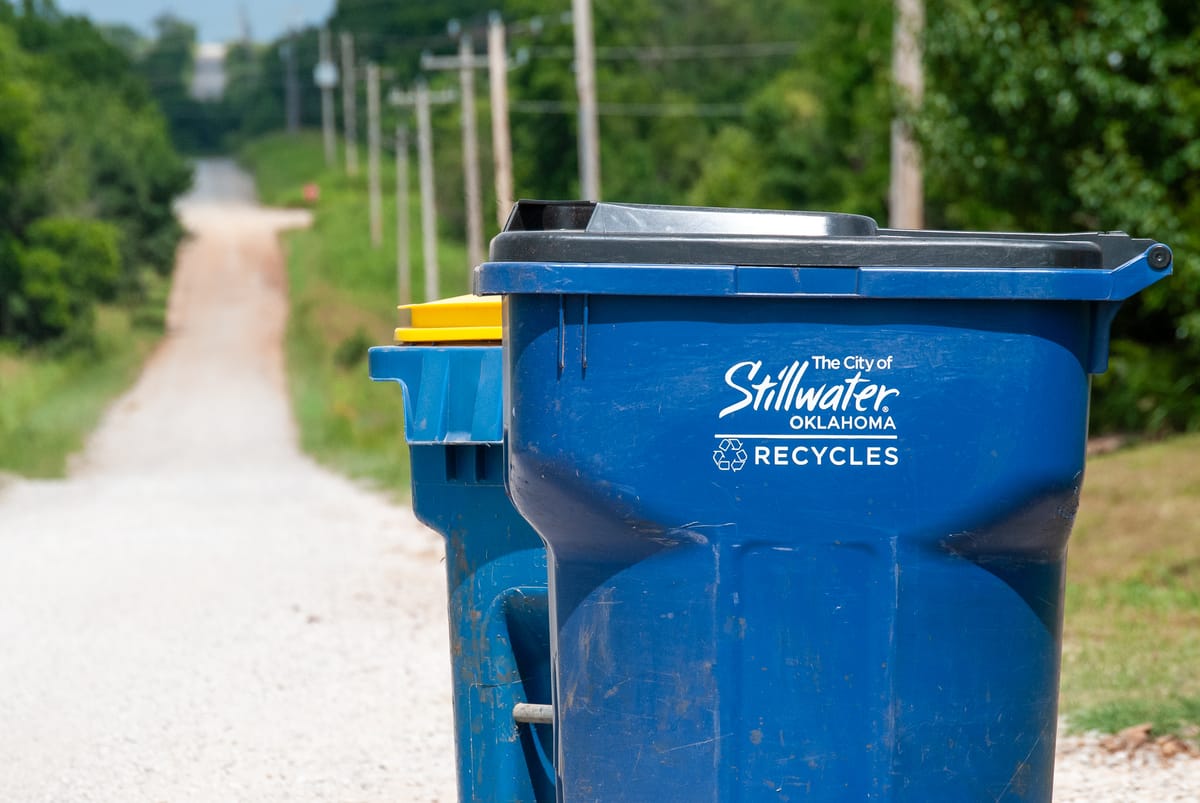

The Stillwater Utilities Authority is reviewing recommendations for substantial rate increases to its waste management services after a comprehensive study revealed significant cost under-recovery, particularly in residential collection services.
NewGen Strategies presented findings from their 2025 solid waste study to trustees June 16, recommending residential rate increases of 8 to 9% for fiscal year 2026. The study projects a $965,019 shortfall in fiscal year 2026 without rate adjustments, potentially threatening the sustainability of city waste services.
"Residential is the biggest one that has to get an increase," said Dave Yanke, president of NewGen Strategies, during his presentation to the authority. "We're looking at a forecasted out in basically five years, 2030, your rate being at $29."
The city's current rate for 96-gallon residential cart service stands at $21.20 per month. Under the proposed scenarios, rates would increase to either $22.90 or $23.11 by fiscal year 2026, depending on which operational improvements the city implements.
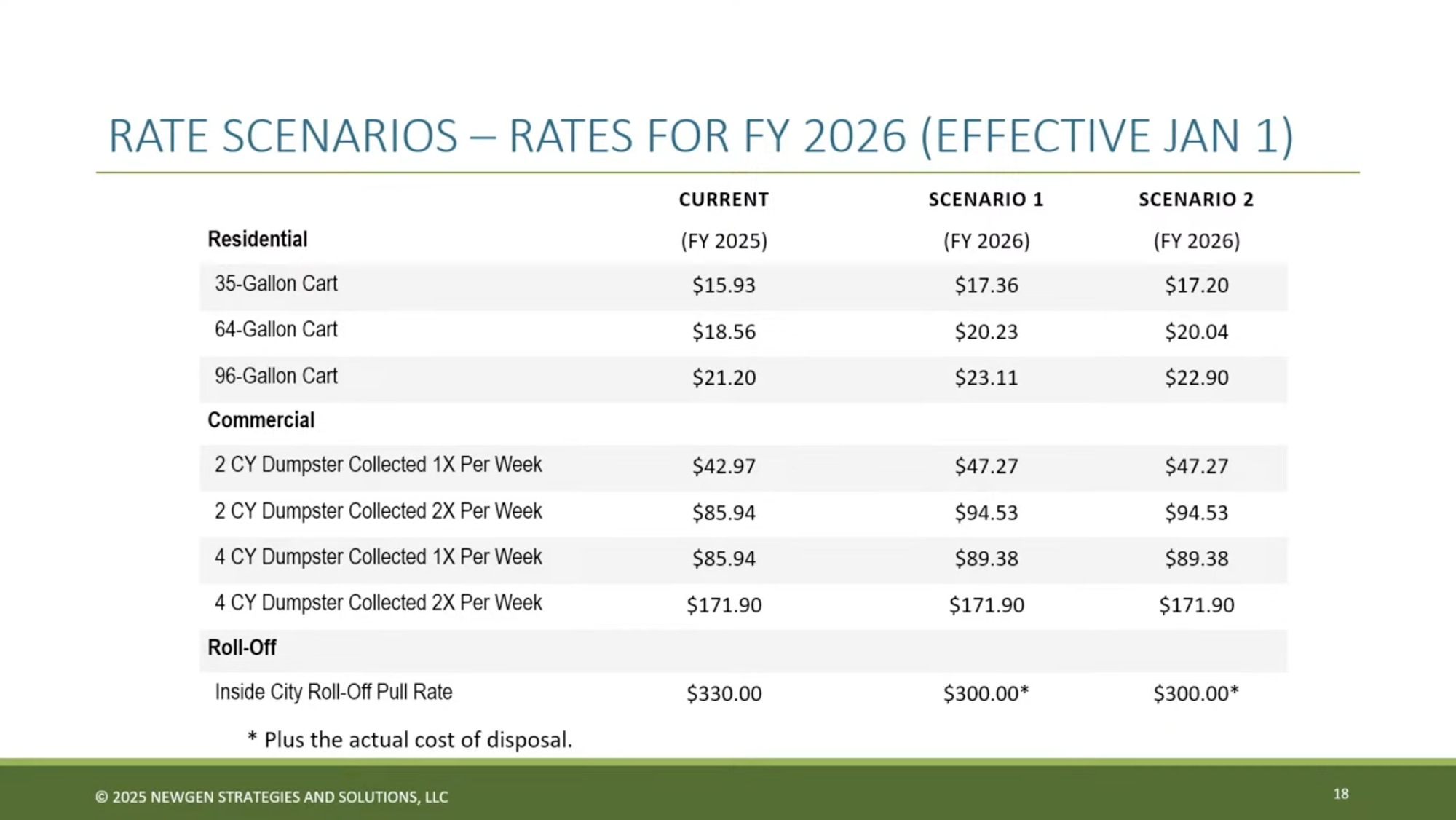
Despite the proposed increases, Stillwater's rates remain competitive compared to similar municipalities. The study's benchmarking analysis shows Stillwater's current rate falls in the middle range among comparable cities, with some already charging over $30 monthly for similar services.
"I have clients right now that are already in the 26 [fiscal year] $30 range and getting ready to do rate increases," Yanke told trustees. "It's interesting, when I was doing this about 10, 15 years ago, it was going over 20 bucks for the first time."
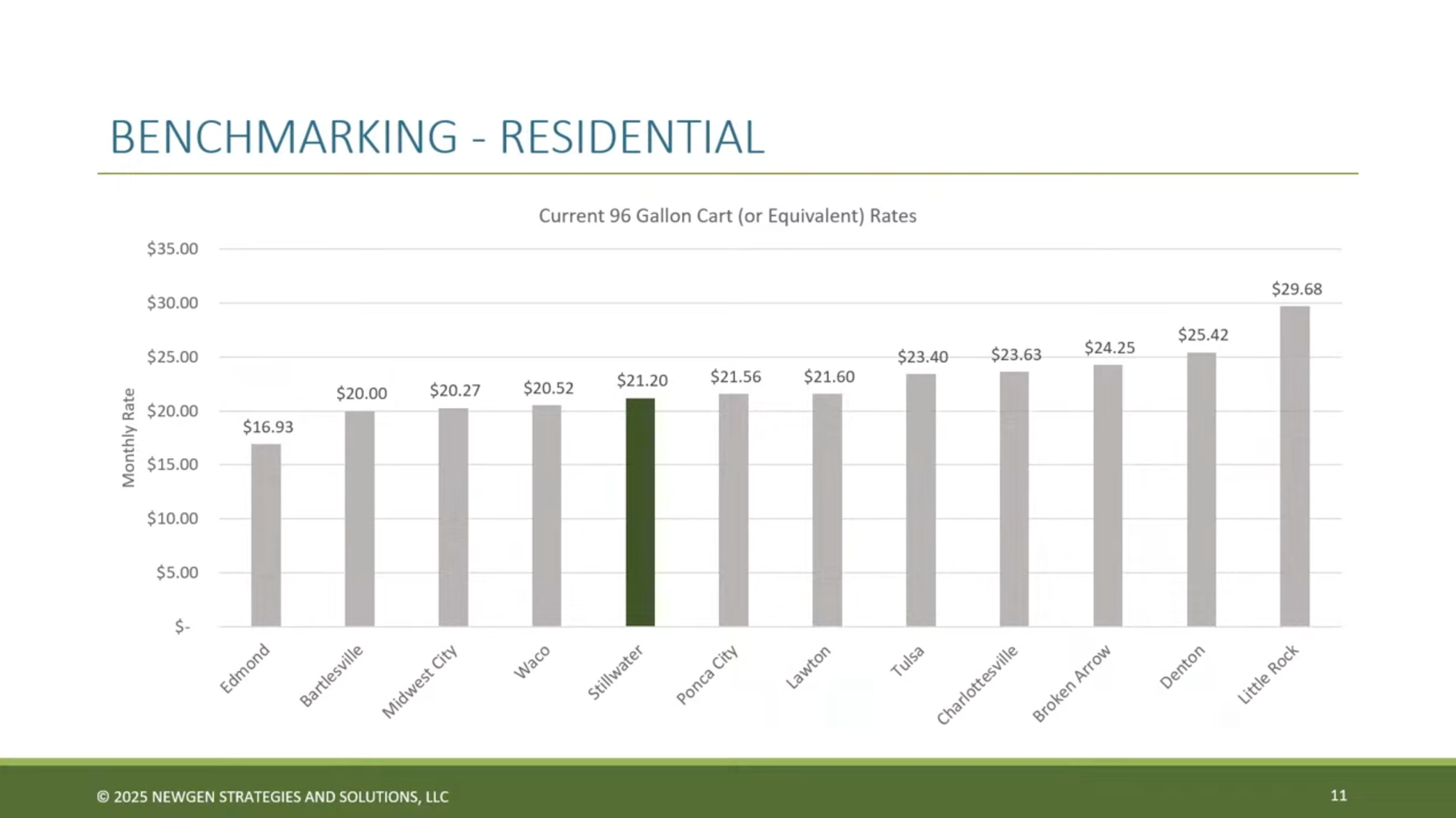
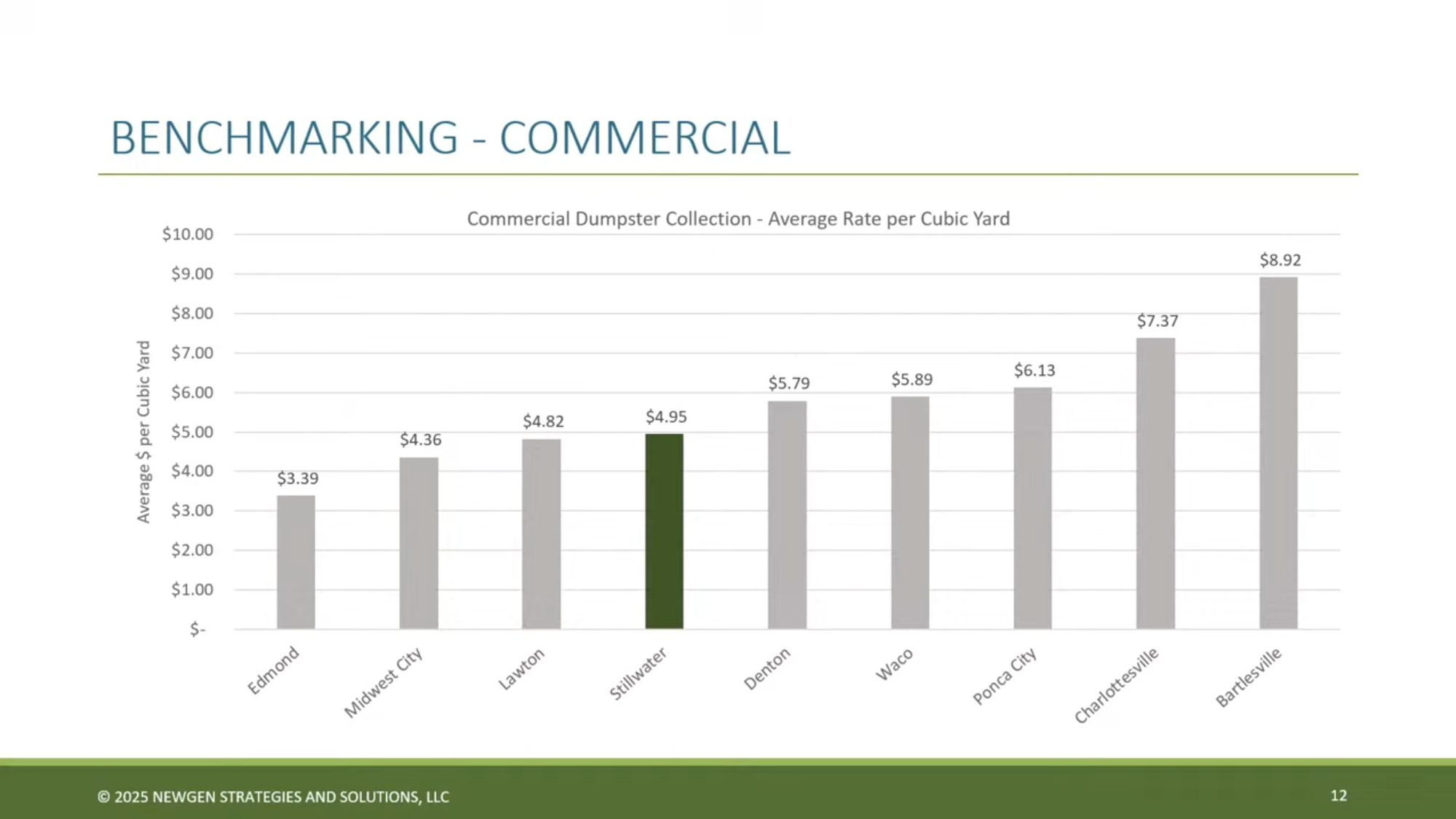
The waste management fund currently maintains reserves of $3.7 million, with a required minimum balance of $1 million. The city plans to use approximately $925,000 of reserves for parking lot improvements and non-lease vehicle purchases, leaving funds available to accommodate short-term operating deficits during the rate adjustment period.
Residential services show the most significant cost under-recovery, with the study revealing these services subsidize other operations. Without rate adjustments, the cumulative under-recovery could reach $2.2 million by fiscal year 2030.
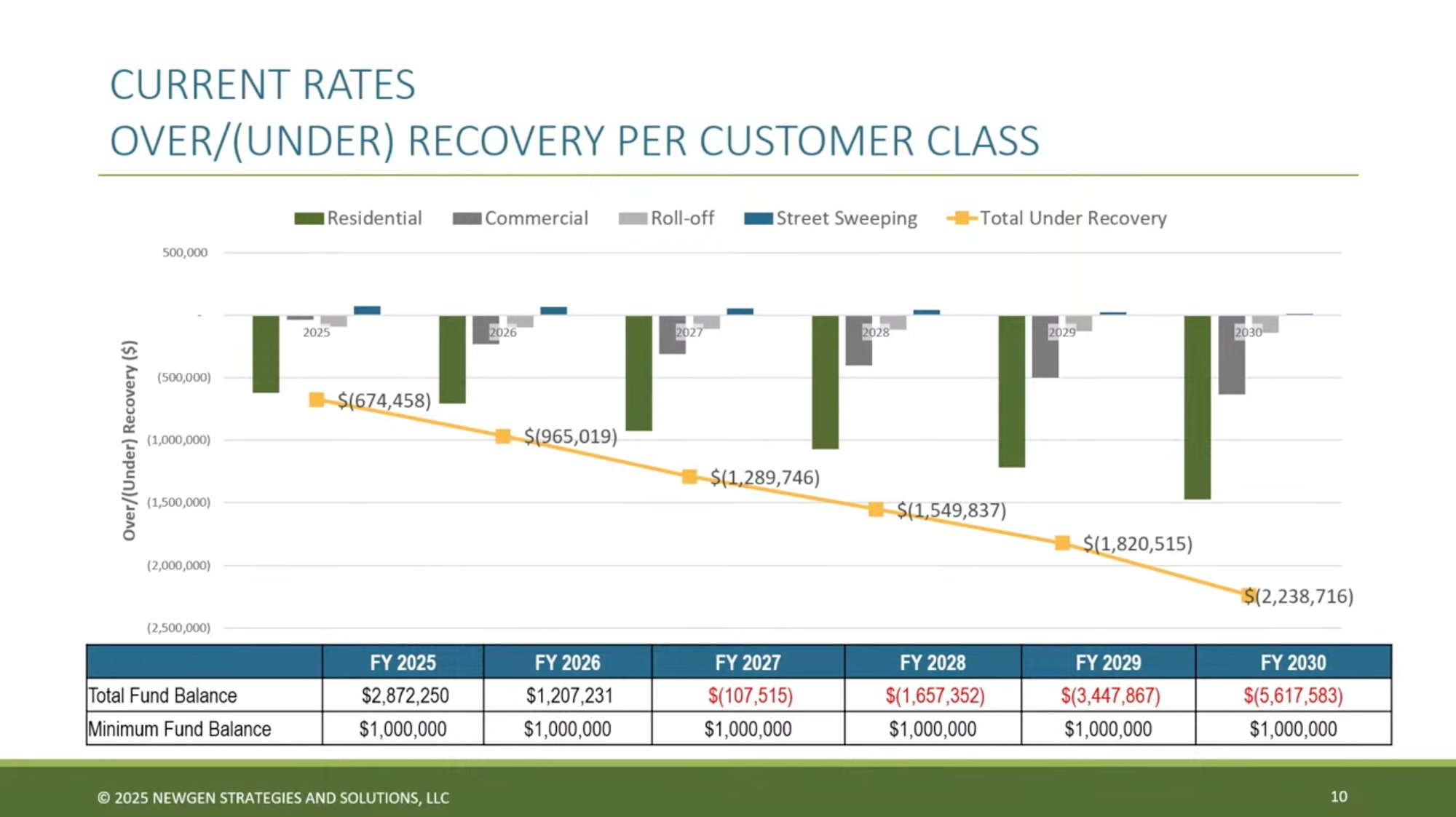
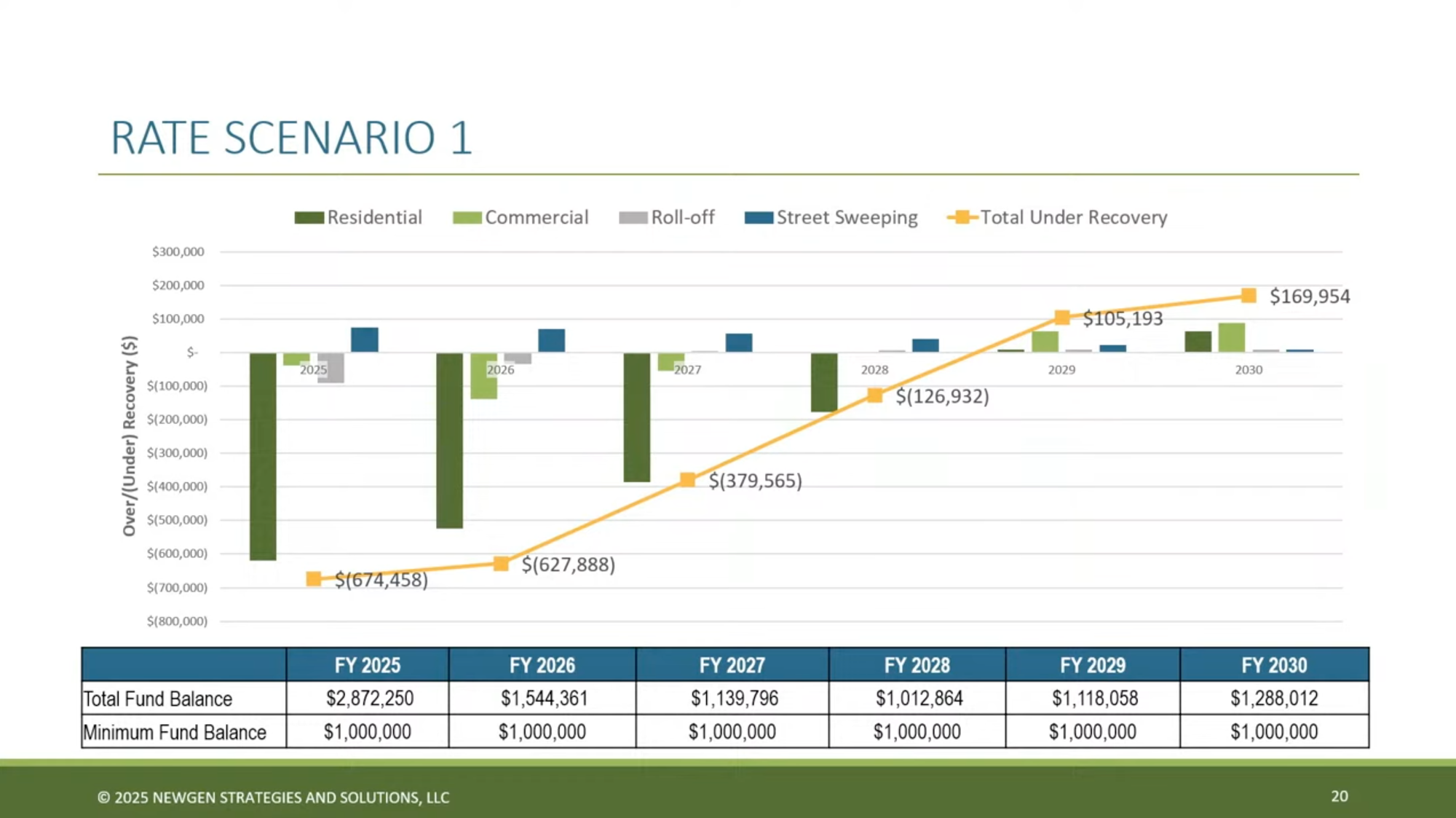
The authority also faces industry-wide challenges driving up operational costs. Equipment prices have increased dramatically, with automated side loaders rising 16% annually from 2020 to 2023. The study cited supply chain issues, steel price volatility, and a nationwide shortage of commercial driver's license holders as contributing factors.
"Five years ago you were able to buy automated side loaders for about 350 grand," Yanke explained. "We work with Tucson and Phoenix. I don't know why theirs are always more expensive over there, but they're over half a million dollars for an automated side loader."
Beyond rate increases, the study recommends several operational improvements that could reduce the financial impact on customers. The city is considering implementing a cardboard baling operation at its collection center, which could generate approximately $76,000 in annual cost savings and revenue.
A message from Visit Stillwater
Summer in America's Friendliest College Town calls for live music, kids' camps, livestock shows, art, and so much more. Check out all there is to see and do in The Original Home of Red Dirt Music this month!
"Right now that material is getting co mingled with the other mixed recyclables," Yanke said. "So it's like you get it collected, you know, in a nice single stream and then you throw it in with all the mixed stuff and then it gets hauled to Tulsa."
The authority is also evaluating a transition from rear-load to front-load dumpster collection for commercial customers. This change could save $250,000 to $300,000 annually while improving safety and efficiency, though it would require new trucks and dumpsters when current lease agreements expire in approximately three years.

"It makes sense to look at moving from rear load to front load dumpster collection, Yanke said. "You can pick up more garbage with each lift ... quite frankly, front loaders are safer also."
The study also recommends restructuring roll-off and compactor fees to include both a collection charge and a disposal fee based on actual weight, rather than the current flat-rate system. Commercial recycling customers would face new fees under the proposed changes.
Additional operational recommendations include phasing out 35-gallon residential carts to improve collection efficiency and implementing minimum monthly charges for commercial customers.
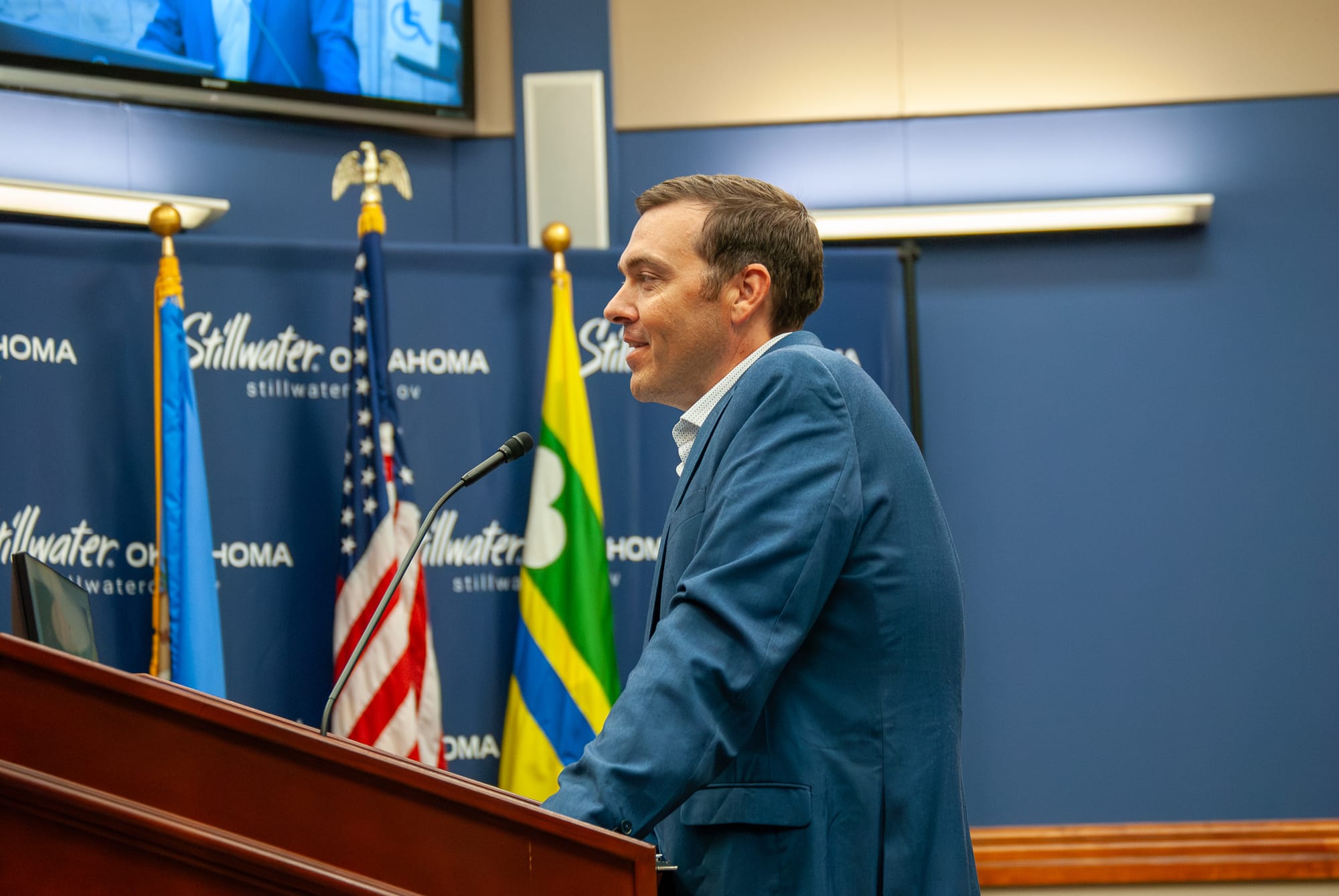
Matt Faulkner, waste management director, emphasized that the presentation was informational only, with no immediate action required. Staff plans to return to trustees at a future meeting with specific recommendations based on the study findings.
The comprehensive study evaluated 17 different service categories across five customer classes, examining everything from residential refuse and recycling to commercial dumpster service and street sweeping operations.
Trustees received the presentation without taking action, allowing time to review the detailed recommendations before making decisions on rate adjustments and operational changes that would affect thousands of residential and commercial customers throughout Stillwater.
📺 Watch the Waste Management Rate Study Presentation


